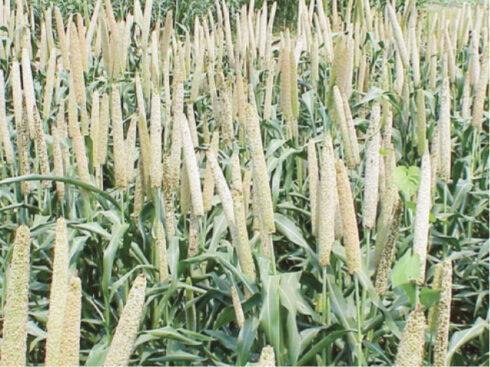Stakeholders decry decline in millet, sorghum cultivation

Cultivation of millet and sorghum are in sharp decline in Nigeria, the Executive Director, National Agricultural Research and Liaison Services (NAERLS), Prof. Emmanuel Ikani, said on Tuesday in Zaria, Kaduna State.
Speaking at a sensitisation workshop and seed fair on sorghum and millet value chains, Ikani attributed the decline to farmers’ inability to access improved seeds for cultivation, thereby making them to plant less than one hectare each.
He said that the sponsor of the workshop, the African Development Bank, had observed that sorghum and millet grow across many international borders and have high potentialities in Africa, especially in the semi-arid region.
Read also: 157 new coronavirus cases recorded in Nigeria
“The Institute of Agricultural Research (IAR) of Ahmadu Bello University Zaria has also developed more than 40 varieties of sorghum, while the Lake Chad Research Institute has also come up with many improved millet seeds,’’ he said.
Ikani called on relevant stakeholders to engage farmers in the rural communities through enlightenment and sensitisation to return to the production of millet as well as sorghum.
The director added that millet and sorghum have nutritious benefits and that a recipe from millet is used in the production of medicines to cure diabetics, cancer and other diseases; while sorghum is used in producing biscuits and malted drinks, among others.
Ikani was represented at the workshop by the Deputy Director of the institute by NAERLS’s deputy director, Prof. Yusuf-Ahmad Sani.
In his contribution, Dr Sharif Wali, representative of the Lake Chad Research Institute (LCRI) also decried the decline in maize production.
Wali said LCRI had released many millet varieties and was still improving on its researches.
“Recently we have come up with millet varieties with other good agronomic practices. The institute appeals for more value addition to millet similar to what obtains with rice and maize,’’ he said.
Alhaji Malami Abubakar, Sokoto State Project Manager, who spoke on behalf Agricultural Development Programmes, said the collaboration between NAERLS and the International Crops Research Institute for Semi-Arid Tropics (ICRISAT) on millet and sorghum was fruitful.
Abubakar said the collaboration centred on the improvement and attainment of enhanced production to improve the economic status of farmers.
He added that the ADPs were ready to sustain collaboration with ICRISAT and other key stakeholders for farmers to get improve seeds and for better agronomic practices.
Similarly, Malam Idris Magaji, representatives of farmers warned that farmers in many parts of the country had abandoned the production of millet and shifted their attention to rice and maize cultivation.
Magaji said: “part of the reason for the shift from millet and sorghum cultivation to rice and maize cultivation was the full value chain in rice and maize that was lacking on millet and sorghum.’’
